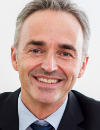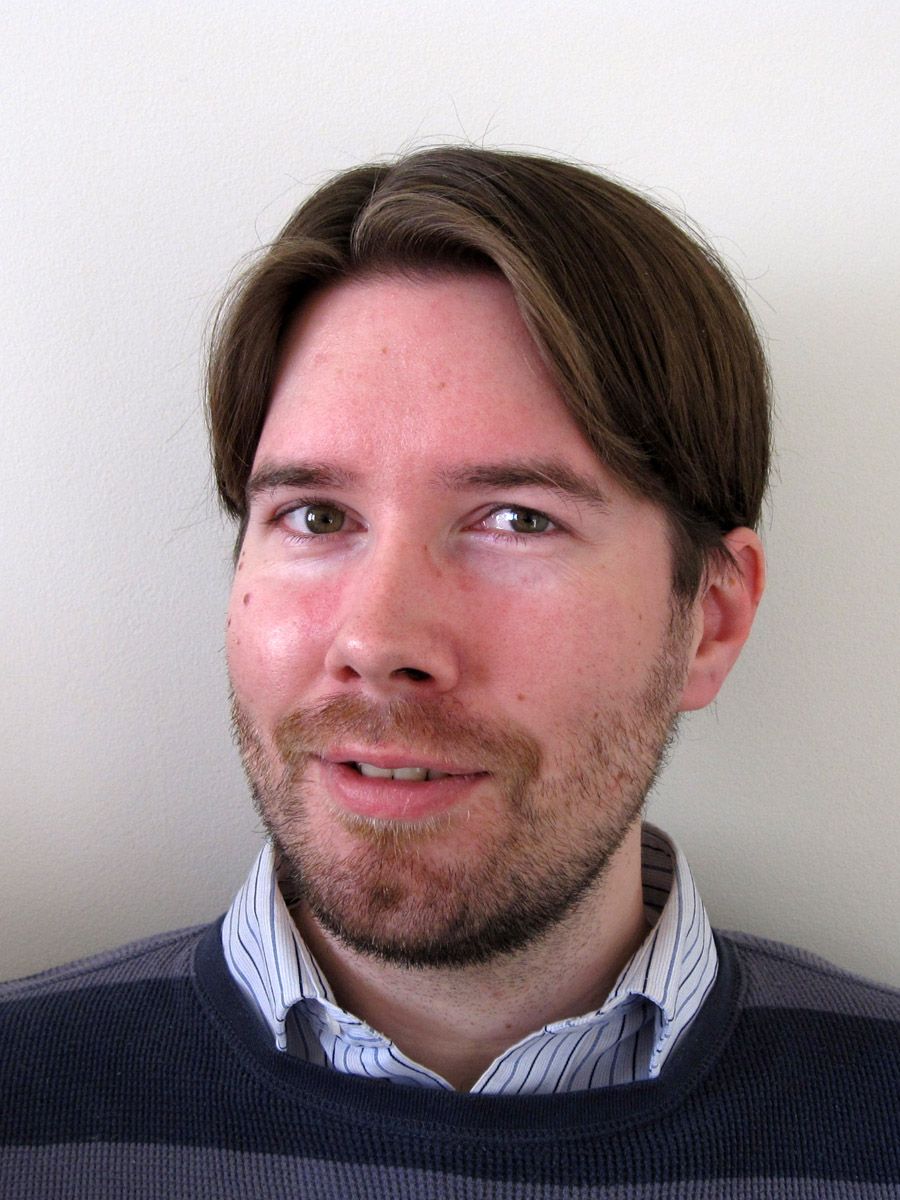Co-Located Conference AgendasAdvances in LabAutomation & Robotics | Genome Engineering | Personalized Medicine and its Impact in the Clinic | 

Wednesday, 7 October 2015 |
Provisional Agenda |
| | 08:00 | Registration | |
Session 1 – Genome Editing for Therapeutic Benefit | | Session Chair: Daniel O’Neill, Senior Research Scientist, AstraZeneca, United Kingdom |
| | 09:00 |  | Keynote Presentation Targeted Genome Editing in IPSC - From Disease Modelling Towards Therapy
Toni Cathomen, Director, University Medical Center Freiburg, Germany
TALENs and CRISPR/Cas9-based nucleases are powerful tools for targeted gene editing in primary cells. Our interest in applying designer nucleases for therapeutic applications allowed us to define parameters that affect the genome-wide specificity of these customized nucleases and to develop GMP-compatible protocols for genome engineering in human stem cells. |
| 09:45 | Profiling Genome-wide Target Specificities of CRISPR/Cas9 Nucleases in Human Cells
Jin-Soo Kim, Director/Associate Professor, Seoul National University, Korea South
We show that CRISPR-Cas9 off-target effects can be avoided by modifying guide RNA and using purified Cas9 protein. We also present Digenome-seq to profile genome-wide Cas9 off-target effects in human cells. | 10:30 | Coffee and Networking in Foyer | 11:00 | Targeted Genetic Engineering in the Pig: An Emerging Biomedical Model
Wilfred Kues, Principal Investigator, Friedrich Loeffler Institut, Germany
Examples of genome edited large mammalian models will be discussed. | 11:45 | Efficient Somatic in vivo Gene Editing using CRISPR/Cas9
Thierry VandenDriessche, Group Leader, Free University of Brussel (VUB), Belgium
We have developed a robust platform for organ-specific somatic gene editing using CRISPR/Cas9. The ability to efficiently inactivate genes in specific organs facilitates analysis of gene function and overcomes some of the limitations of germline genetic modification and transgenic mouse models. | 12:30 | Lunch & Networking in Foyer | 13:15 |  Poster Session in Foyer Poster Session in Foyer
| |
Session 2 – Precise Genome Editing | | Session Chair: Ralf Kuhn, Head, Max Delbrück Center for Molecular Medicine, Germany |
| | 14:00 |  | Keynote Presentation Bacteria vs. viruses: DNA interference by CRISPR-Cas surveillance complexes
Lennart Randau, Group Leader, Max-Planck Institute for Terrestrial Microbiology, Germany
|
| 14:45 | Working Together to Unlock the Potential of Precise Genome Editing
Lorenz Mayr, Vice President, AstraZeneca Ltd, United Kingdom
We will present AstraZeneca’s activities with the CRISPR/Cas9 technology for target discovery, target validation & mechanistic studies and will review our external academic and industrial research collaborations for genome-wide target discovery. | 15:15 | Coffee and Networking in Foyer | 15:30 | Efficient CRISPR/Cas9 Genome Engineering using Zygotes and Embryos Derived from Cas9 Overexpressing Transgenic Mice
Ben Davies, Group Leader, University of Oxford, United Kingdom
Knock-out and point mutation Knock-in mouse models were efficiency generated by microinjection of oocytes derived from Cas9 overexpressing mice. This genetic supply of Cas9 further simplifies model production using the CRISPR system and led to a significant increase in efficiency. | 16:00 | 150x100.gif) A Generic Strategy for CRISPR/Cas-mediated Gene Tagging A Generic Strategy for CRISPR/Cas-mediated Gene Tagging
Daniel Lackner, Senior Scientist, Horizon Discovery
We developed a strategy that enables the tagging of endogenous loci by NHEJ using a generic donor template. We show that this strategy is efficient and present showcases of human genes endogenously tagged with NanoLuc luciferase or TurboGFP.
| 16:30 | AgBiotech - Tools for Plant Genome Engineering and Genome Reprogramming
Jens Boch, Scientist, Martin-Luther-University Halle-Wittenberg, Germany
Genome engineering holds great prospects for designer breeding of crops. I will present an overview of possibilities and challenges for genome engineering in plants as well as examples to expand the use of TALEs and TALENs. | 17:00 | End of Day One |
Thursday, 8 October 2015 |
Session 3 – Tools For Genome Engineering | | Session Chair: Francis Stewart, Professor, Technische Universitat Dresden, Germany |
| | 09:00 | Engineering the Genome with the Sleeping Beauty Transposon System
Zoltan Ivics, Head of Division, Paul Ehrlich Institute, Germany
The Sleeping Beauty transposon system yields efficient stable gene transfer following gene delivery into the germline of several mammalian model species as well as into pluripotent and multipotent stem cells that are relevant targets for regenerative medicine and gene- and cell-based therapies of complex genetic diseases. | 09:30 | Efficient Sleeping Beauty Transposon-based Gene Expression in Stem Cells
Zsuzsanna Izsvak, Head/Professor, Max Delbrück Center for Molecular Medicine, Germany
| 10:00 | Structure-based Engineering for the Advancement of Transposon Tools: The Case of Sleeping Beauty
Franka Voigt, Postdoctoral Fellow, Friedrich Miescher Institute for Biomedical Research, Basel, Switzerland
The Sleeping Beauty transposon provides a powerful genetic engineering tool with applications including human gene therapy. In this talk, I will present structural and functional data providing insights into its mechanism and allowing us to engineer novel hyperactive transposase variants. | 10:30 | Coffee and Networking in Foyer | 11:00 | BuD, A Helix-loop-helix DNA-binding Domain for Genome Modification
Stefano Stela, Associate Professor, The Novo Nordisk Foundation Center for Protein Research, University of Copenhagen, Denmark
BurrH is a new highly polymorphic modular DNA-binding modular protein. The crystal structure reveals the DNA-binding to occur in a different manner compared to other modular proteins. This provides us with a new platform for genome editing. | 11:30 | | 12:15 | Designer Recombinases for Therapeutic Genome Engineering
Frank Buchholz, Professor, University of Technology Dresden, Germany
The directed evolution of a Cre-based recombinase to target a conserved sequence in long-terminal repeats of the majority of HIV-1 isolates will be presented. | 12:45 | Lunch & Networking in Foyer | 13:15 |  Poster Session in Foyer Poster Session in Foyer
| |
Session 4 – Beyond Gene Editing | | Session Chair: Zsuzsanna Izsvak, Head/Professor, Max Delbrück Center for Molecular Medicine, Germany |
| | 14:00 | | 15:00 | Coffee and Networking in Foyer | 15:30 | Deciphering miRNA-target Regulation by Site-specific Genome Engineering
Tudor Fulga, Associate Professor of Genome Biology, University of Oxford, United Kingdom
Central to understanding cellular networks regulated by miRNAs is identification of their primary targets in vivo. We have developed a powerful genome engineering experimental platform, which enables rapid interrogation of physiologically relevant miRNA response elements in intact biological systems. | 16:00 | Concerted Applications of Recombineering and CRISPR/Cas9 Assisted Targeting
Francis Stewart, Professor, Technische Universitat Dresden, Germany
Our work concentrates on the complimentarity between recombineering and Cas9-assisted targeting to establish conditional alleles and to
achieve complex tasks. | 16:30 | Close of Conference |
|


 Add to Calendar ▼2015-10-07 00:00:002015-10-08 00:00:00Europe/LondonGenome EngineeringGenome Engineering in Hanover, GermanyHanover, GermanySELECTBIOenquiries@selectbiosciences.com
Add to Calendar ▼2015-10-07 00:00:002015-10-08 00:00:00Europe/LondonGenome EngineeringGenome Engineering in Hanover, GermanyHanover, GermanySELECTBIOenquiries@selectbiosciences.com